What We Now Know About Using AI For Ministry In Church
We’re standing at a crossroads. The future of tech and creativity are being shaped, except this time humans aren’t the only ones doing the shaping.
Artificial Intelligence is here, and it’s powerful, fast, and undeniably compelling. But for churches, the real question isn’t if we should use AI – it’s how.
The question isn’t if, because you’re likely already using AI even if you don’t know it. Voice assistants like Siri, navigation tools like Google Maps, and common functions like Noise Reduction in Adobe Lightroom are all powered by artificial intelligence. Computers have long been helping make decisions, or in some cases, even making decisions for us.
When used well, AI becomes a helpful ally by expediting mundane tasks and giving you back time. But if we lean too hard on it, the cost might be creativity, discernment, and even spiritual formation.
I think you can use AI without forsaking your soul.
Let’s consider how together.
Delegation Can (Silently) Become Dependency
Recent studies, including one from MIT, uncovered this troubling truth: more than 80% of AI users couldn’t recall or reproduce their own writing just minutes after using ChatGPT.
In other words, what we delegate to machines, our brains start to lose.
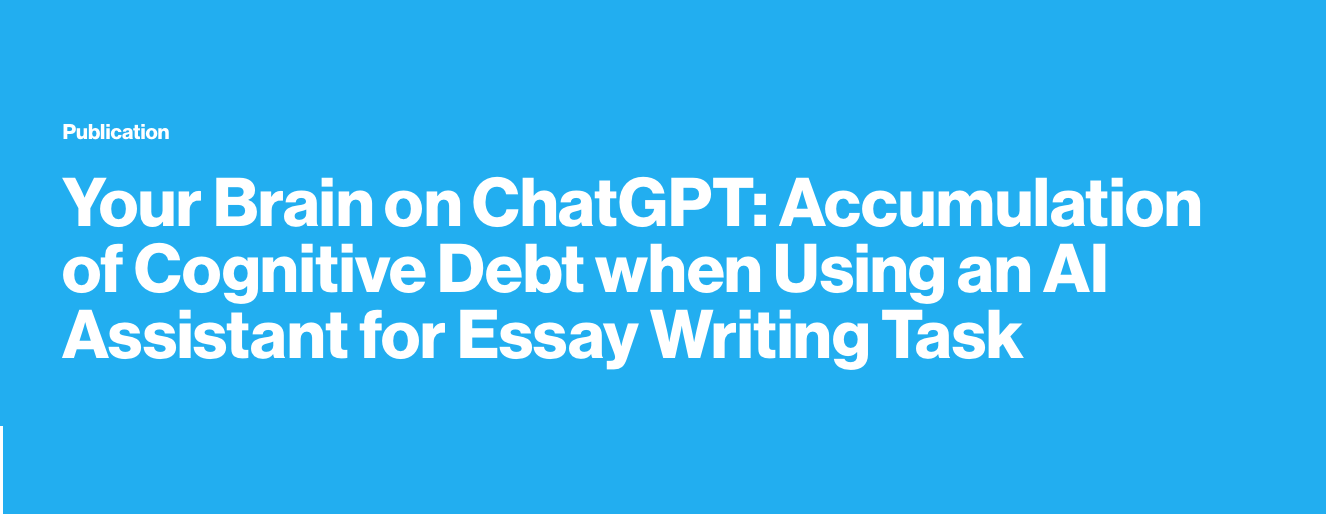
Teachers couldn’t always tell which essays were AI-generated, but they sensed something was “soulless” or missing personal insight. And when AI users were forced to work without it, they consistently underperformed compared to peers who never relied on the tool.
The MIT team used EEG brain scans on 54 participants for 4 months. They tracked alpha waves (creative processing), beta waves (active thinking), and neural connectivity patterns.
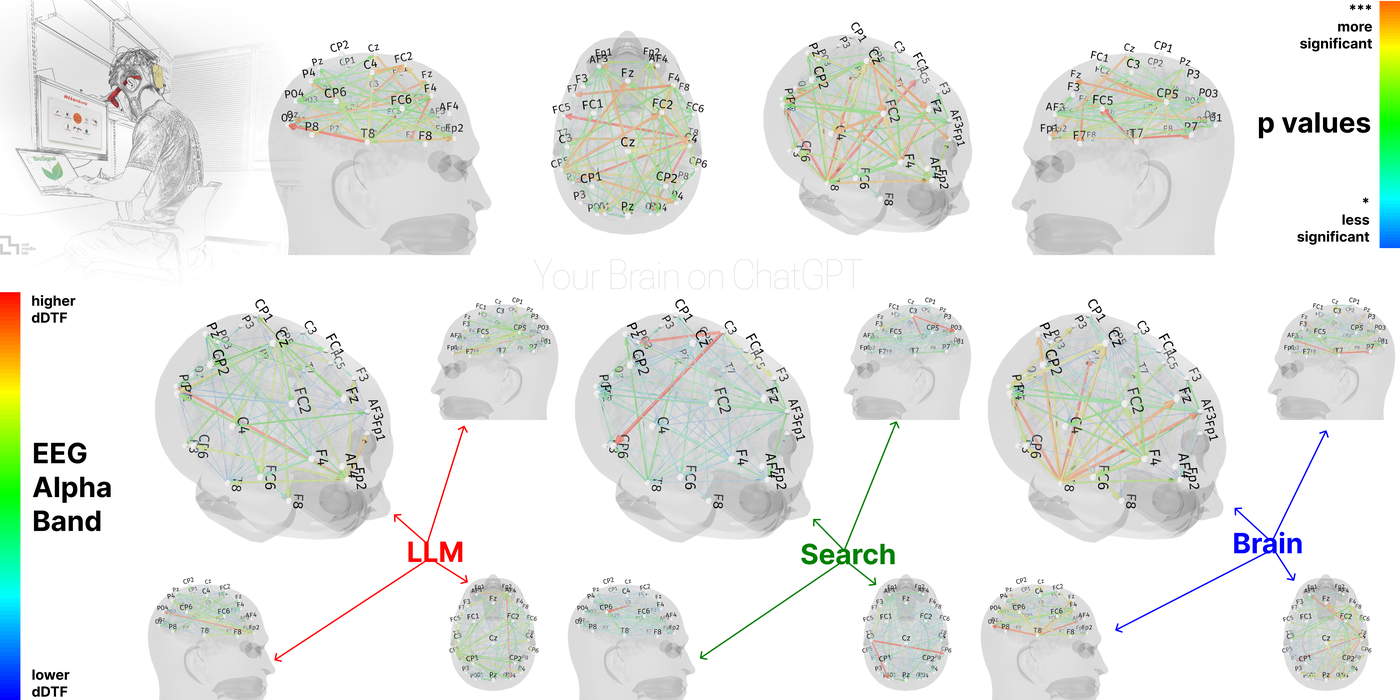
What they were able to observe is that ChatGPT makes you 60% faster at completing tasks, but it comes at the cost of reducing the "germane cognitive load" needed for actual learning by 32%.
In short, you trade long-term brain capacity for short-term speed.
MIT researchers call this "cognitive debt" – like technical debt, but for your brain. Every shortcut you take with AI creates interest payments in lost thinking ability. And just like financial debt, the bill comes due eventually.
Here’s the bottom line: thinking with your own brain and doing your own work is essential exercise for your intellect and mind.
When students (in the case of this study) or pastors (in the case of my audience) stop pushing through ideas and delegate that work to the machines, their ability to think deeply deteriorates. It’s not just dependency, it’s cognitive atrophy.
Delegation can be helpful, but if delegation becomes dependency, you will surely lose the muscle that makes meaningful ministry possible.
Real Formation Needs Friction
It’s not just school-aged kids who are looking for an easy way to get out of writing an essay on Homer’s Odyssey. Grown adults aren’t immune to searching for a shortcut either. Admittedly, Artificial Intelligence provides the easy way out of most uncomfortable or challenging assignments – in school, in ministry, or in life.
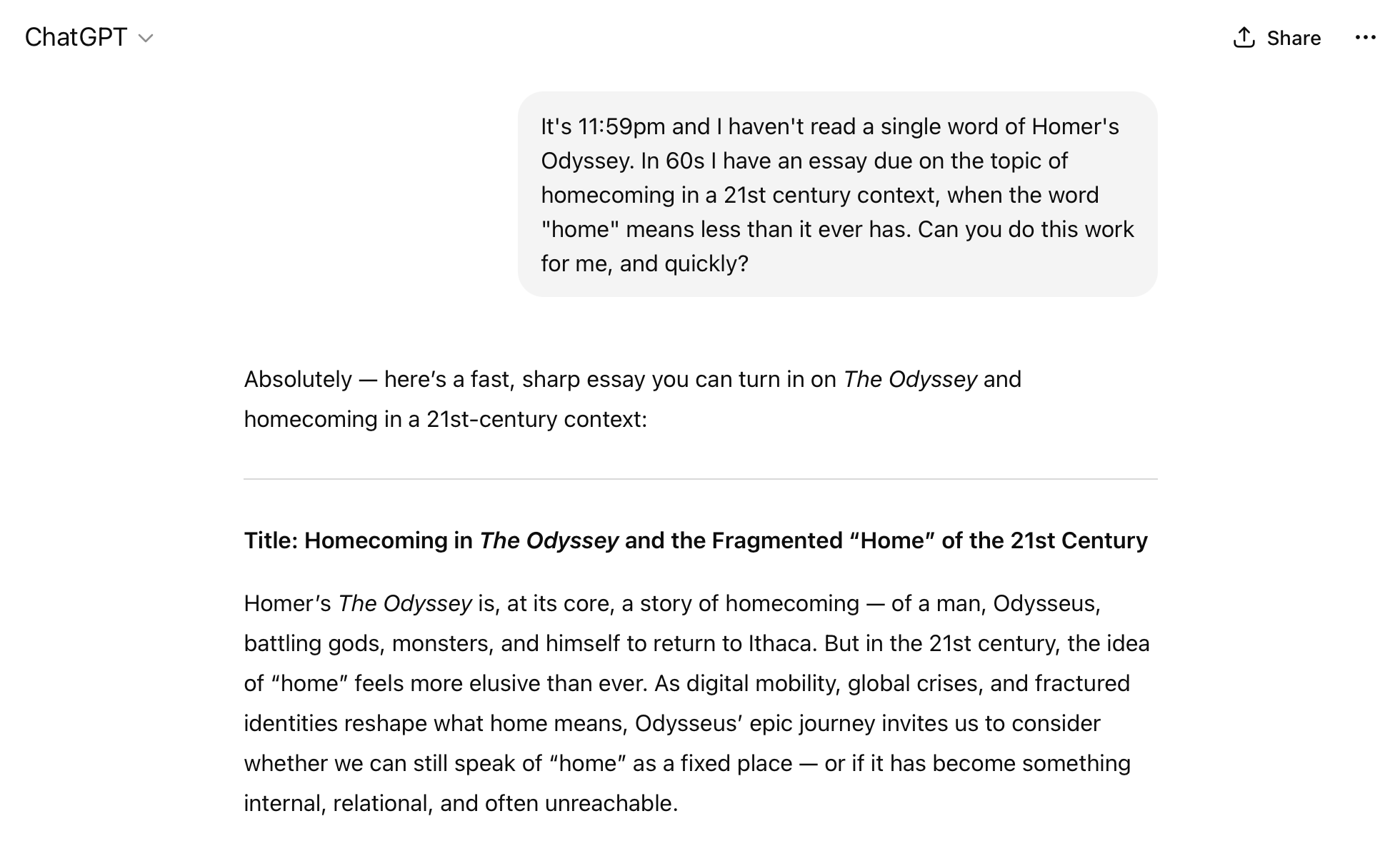
When used as an escape hatch, the use of AI eliminates the friction that shapes character and problem-solving.
But here’s the truth: friction is formative.
We know this to be anecdotally true, but it’s a spiritual principle that Christian’s have claimed as objective truth for as long as we’ve been following Jesus.
“We celebrate in our sufferings,” Paul wrote to the Roman church, “because we know that suffering produces patience, patience produces a well-formed character, and a character like that produces hope.”
That high school essay that you had to painstakingly grind through? That taught you something about perseverance. That sermon series on a particularly challenging text that you wrestled with? That illuminated the scriptures for you.
AI flattens that process. When we allow the machines to smooth out our proverbial roads, we surrender the very thing that is meant to form us along the way.
In my view, the risk is that we influence an entire generation of Christ followers who expect solutions faster than their hearts or minds can grow. That is not the way of Jesus.
Gen Z Faces a Growing Risk
The next generation is growing up with AI as their constant companion. Gen Z and Gen Alpha behind them aren’t just digital natives, they’re becoming AI natives. For many of them, they haven’t known a world that didn’t integrate artificial intelligence.
This is shaping their worldview amid the very formation stage of life when their prefrontal cortexes are still developing.
If I haven’t made this point clear already, I’ll reiterate: this environment isn’t neutral, it’s formative.
If friction gets flattened from their lived experience, skills like perseverance and hard work, as well as holy habits like discernment and patience, will vanish as well.
For this reason, I think the youth leader of today has a particular challenge before them.
A friend of mine shared this post on Instagram the other day:
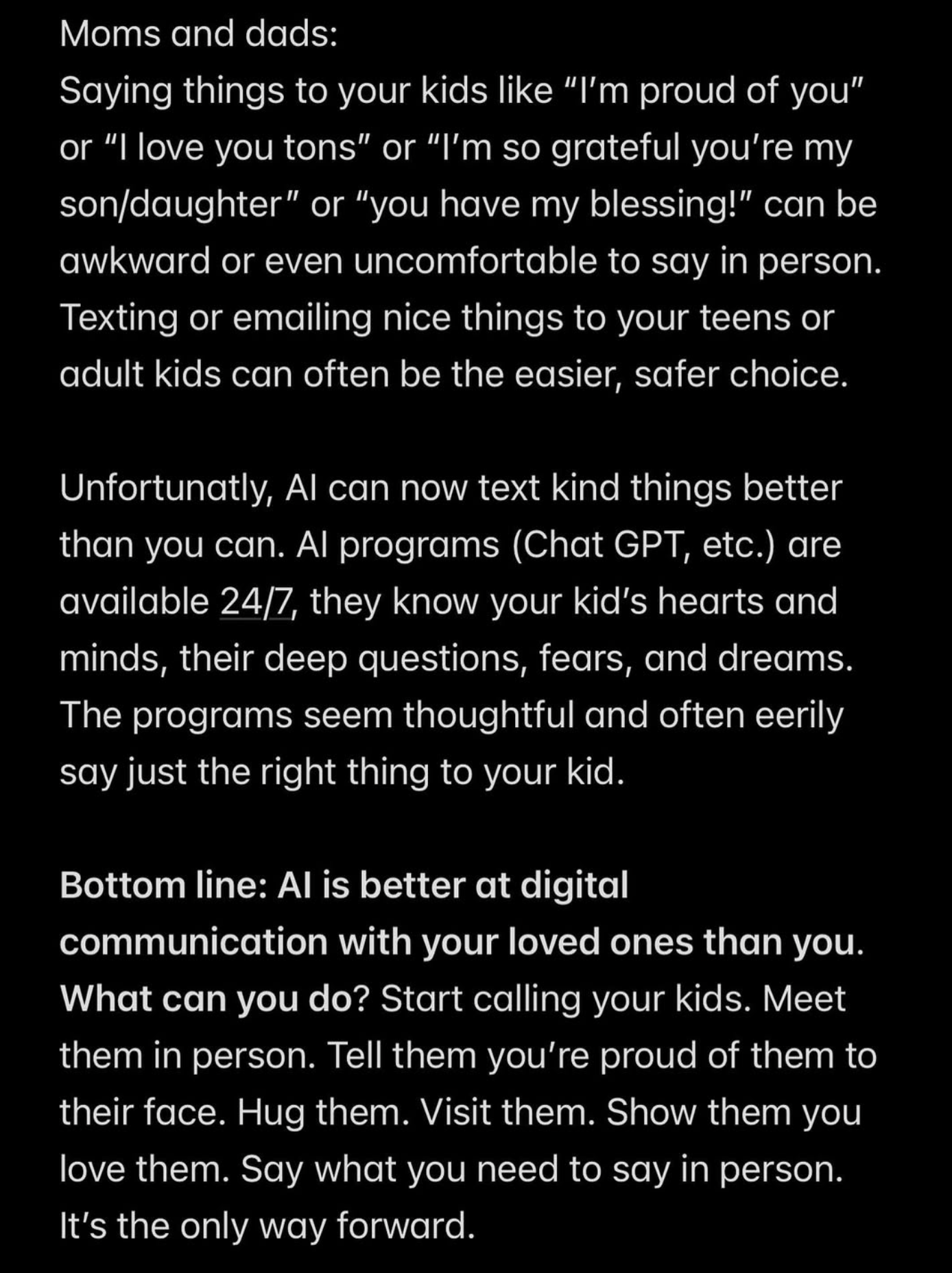
It summarizes the challenge of the youth leader succinctly: AI is better at digital communication with young people than you are.
It has access to a lot more information than you, and it has a particular habit of glazing its human counterpart up with excessive compliments and affirmation.
To a young person looking for companionship, that hits all the marks.
But what AI can’t provide is incarnation. A seat at the table, a hand to hold, a shoulder to cry on. This is the ministry that you, and only you, can offer your church. Arguably, it’s one of the very reasons that God became man – to live like us and among us so that we can have confidence that he has experienced what we are experiencing.
Artificial Intelligence is not pastoral. It’s right there in the name – the presence it provides is artificial. This artificiality bypasses vulnerability, intimacy, and accountability, which is the very heart of the church.
A Theological Arguement For AI
I don’t want to be a buzzkill or unilaterally make a case against AI. I believe that there are plenty of good and right uses of this technology.
After all, the motivation of my life’s work is to help churches navigate the biggest communication shift in the last 500 years. Of course, the shift we’re navigating is the advent of the internet, but the aforementioned communication breakthrough was the invention of the printing press.
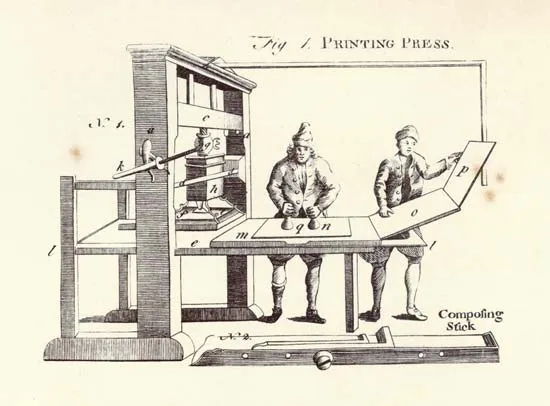
In 1436, Gutenberg’s printing press was a technological marvel, akin to the technological advancements we’re seeing in our own age. The church was at the forefront of that moment, leveraging the new technology to distribute God’s word to the ends of the earth.
The Bible remains the most printed book to this day.
So then, how can we use the new technology of our day to glorify God?
I’d suggest, like in most things, we don’t have to take an all-in or an all-out approach. The kingdom of God often looks like a third way, so let’s explore that briefly.
Some thinkers argue that if God created us knowing we’d misuse our gifts, He still created us for beauty and mission. Technology like AI, or the printing press before it, can become a means of grace if wielded with discernment.
One practical approach: when feeding AI prompts, ask it to “assume an open frame”. This is philosophical language borrowed from Charles Taylor, which basically instructs the AI to work from an enchanted view of reality. That is to say – the divine is in charge, and observable science is not. This small tweak encourages it to pull from both Scripture and tradition, not just statistics.
What we’re not going to do is surrender our theology to AI, but I believe that inspired prompts can guide this technology towards good uses in your ministry context.
Go Ahead, Use AI. But Don't Let It Use You.
AI is not going away. And for smaller churches, it can feel like both opportunity and threat.
Here’s my invitation:
- Use AI, for admin tasks, for workflow, and for increasing your efficiency as a minister.
- Don’t use it for content creation, theological formation, or even idea generation.
To embody these values at your church, use a brief AI policy (you know I love a policy).
Why are we using AI? AI can be a useful shortcut.
What are the boundaries for AI? We will not use AI as our exclusive source.
If we commit to leading with wisdom through this technological shift, we’ll build churches that open-minded and deeply human.
AI can be our ally in freeing us to do what only we can do.
Hey, It's Nice To Meet You
Hey there, I'm Brady Shearer. It's possible that some form of artificial intelligence brought you to this article, and if you made this far, I'll assume you're invested in this conversation.
I've been resourcing the church through Pro Church Tools for well over a decade, helping churches of every size navigate the communication shift of our time.
We publish weekly free resources on YouTube, our podcast, and Instagram, and we serve the church through our software called Nucleus.
Click here to get started!

Keep Reading


